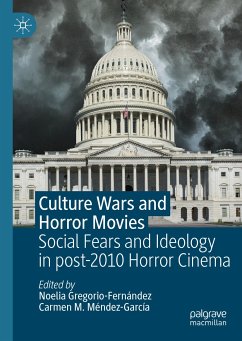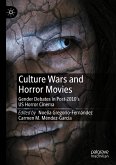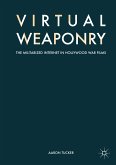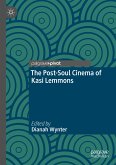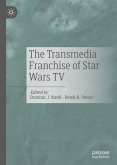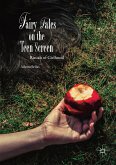"Bringing together contributions from an international group of scholars, this outstanding collection of essays investigates the sociopolitical dimensions of contemporary horror films. With clear-sightedness and elegance, the volume taps into the current debates on the American culture wars in order to advance the conversation about the significance of cinema in the twenty-first century. Readers are bound to find it fascinating."
Ludmila Martanovschi, Associate Professor of American Studies, Ovidius University, Romania' for Martanovschi. Secretary of the Society for Multi-Ethnic Studies: Europe and the Americas (MESEA)
In this volume, contributors explore the deep ideological polarization in US society as portrayed in horror narratives and tropes. By navigating this polarized society in their representation of social values, twenty[1]first-century horror films critically frame and engage conflicting and divisive ideological issues. Culture Wars and Horror Movies: Social Fears and Ideology in Post-2010 Horror Cinema analyses the ways in which these "culture wars" make their way into and through contemporary horror films, focusing on the post-2010 US context and its fundamental political divisions.
Noelia Gregorio-Fernández is an Associate Professor of American Studies at the International University of La Rioja, Spain. She was a visiting scholar at the Center for the Study of Ethnicity and Race at Columbia University, New York (USA), and is the author of The Rebel of Chicano Cinema: Robert Rodriguez in the Transnational Era (2020).
Carmen M. Méndez-García is an Associate Professor of American Literature at the Department of English Studies, Universidad Complutense de Madrid Spain. Current research and teaching interests include twentieth and twenty-first-century U.S. literature, postmodernism and contemporary fiction, the Countercultures in the U.S., Spatial studies, Gender studies, and Medical Humanities.
Dieser Download kann aus rechtlichen Gründen nur mit Rechnungsadresse in A, B, BG, CY, CZ, D, DK, EW, E, FIN, F, GR, HR, H, IRL, I, LT, L, LR, M, NL, PL, P, R, S, SLO, SK ausgeliefert werden.

